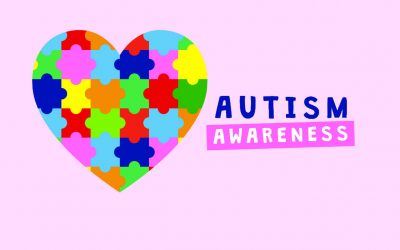Author pens first book about experiences with autism
By Janelle Brennand, staff reporter, Okotoks Western Wheel, July 12, 2002
When Kris Jones and her husband Gord first learned their daughter Allison was autistic 30 years ago, they knew their lives would be very different from what they had expected. Today, Alison’s mother has incorporated the adjustments she’s made and the emotions she’s felt over the years into her first book.
“Allison’s Suncatchers and Chains: A Journey with Autism” follows Jones’ experiences as she raised her autistic daughter from birth to adulthood. “It is my intention to share how I have attempted to meet the challenges Allison and I have faced, some of the feelings I have experienced, the adjustments I have had to make and how I have fried to cope and give meaning to it all,” wrote Jones in the introduction of her book. “It is the story of how I have raised my daughter in the best way I knew how, guided by the love and commitment I have for her,” she continued.
The book is divided into three parts. The first part derails Alison’s early years and the author’s Struggles to deal with the diagnosis. The second part describes Alison’s school years within the’ Foothills School Division from elementary school to high school graduation, with a chapter devoted to her epilepsy. The final section shares the story of Allison’s life as an adult, and deals with the struggles Jones faced in letting go and finding a place for her daughter to reside.
“The three sections of the book show the three significant eras in Allison’s life,” said Jones.
Jones first began considering writing a book during her years as a nursing instructor at Mount Royal College. “I had always wanted to write a book but I never had the time and didn’t really know how to start,” she said. After retiring in 2000, Jones’ sister, Shelley Younge, stepped in and gave her the final push to write the book. Once she got the ball rolling, Jones explained that the writing process was very exciting and much shorter than was expect ed. “It was a two-year project, but I got on a mission,” she said. The project began in October of 2001 and stretched until mid-March of 2002.
In that time Jones spent many hours at the computer, sometimes writing for 12 or 14 hours in one day or getting up in the middle of the night to record a sudden thought or memory. “It was a nice way to spend the winter,” she laughed. Late-night writing was actually the way Jones came up with the title of her book. I changed the name (of the book) more than once,” she said. I asked myself, “‘what really exemplifies what autism means to me?” It became obvious this was the right title. The title uses suncatchers and chains as metaphors for autism. Chains are often held and manipulated by Alison in her hands to calm herself in stressful situations. To the author they represent the restrictions’ and bondage that autism has placed on her daughter.
The suncatchers, cherished by Alison as a way to indirectly make contact with others by looking through them, represent the bright side of autism and the many wonderful memories the author has shared with her daughter. In her introduction, Jones writes of the title’s metaphorical meaning.
“Like many things in the world, autism is a paradox,” she writes. “It has its shadow side as well as its light side, positive and negative aspects living together, the yin and the yang.”
It was these opposing experiences that make up the many anecdotes within the book. Jones explained that she had no journals or diaries to look through and relied solely on her memory for the stories. “I never kept a journal but I’m able to remember details,” she said. “The stories just came out. Gord edited each chapter as I went and was amazed at the details I could remember.”
Jones said her husband and family were tremendously supportive through out the entire writing process. “Our family is just really pleased and excited about the book,” she said. “They stood behind me all along.”
Providing such intimate and personal information in her book, Jones explained, made her feel vulnerable at times. Nevertheless, she said she knew it was worth the risk. “I very much believe that people learn through stories,” she said. “If people can learn through our stories I will have attained my goal. This book comes from my heart.”
The author believes her years as a nursing instructor have contributed to a slight professional slant of the book. She said she hopes her book will be used as a resource for disability studies at colleges or universities and that it will be of help for families, caregivers and teachers of people with disabilities.
Ann Motifee, a well-known Canadian author and singer-songwriter from the Gulf Islands off Vancouver Island and good friend of Jones, wrote a preface for the book , as well as a testimonial.
“This book affords a glimpse into the heart of a mother and the world of her ongoing longing to find safety and fulfillment for her autistic child,” wrote Mortifee in the preface. “It is an extraordinary account of the daily demands and frustrations, the joys and gifts of learning to surrender to a fact of life that you did not choose and would do anything to change.”
Now that the book has been completed, Jones hopes her next project will be to share her experiences with others in a slightly different manner. “My dream is to do some speaking at teachers’ conferences and hopefully at conferences on autism and disabilities,” she said. “1 just have to wait and see what evolves from the book.” “Right now I’m going to see where this takes me,” she continued. ‘T m not sure what my next book will be or if there will be a next book. I’m open to all possibilities.” Jones said she is happy to see the final product and has no regrets. “1 don’t really see (writing the book) as work,” said Jones. “It was a labor of love, although it was very, very time consuming. For me it was a very worthwhile


